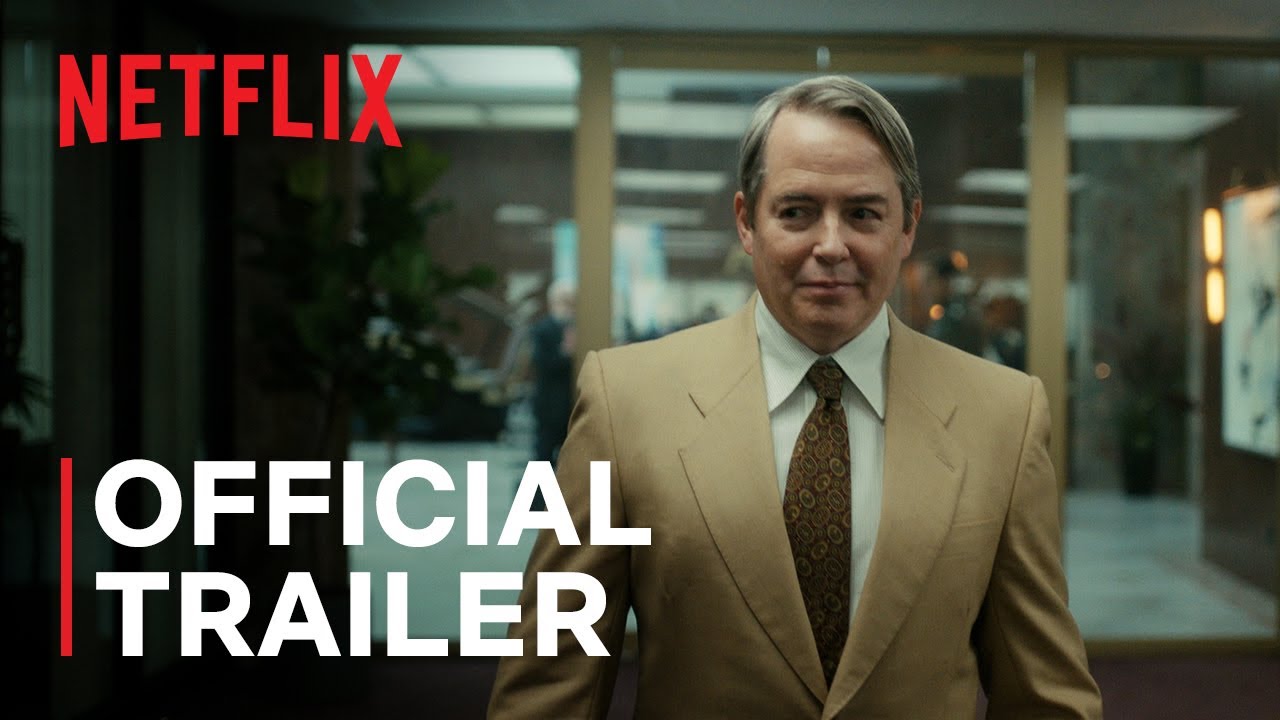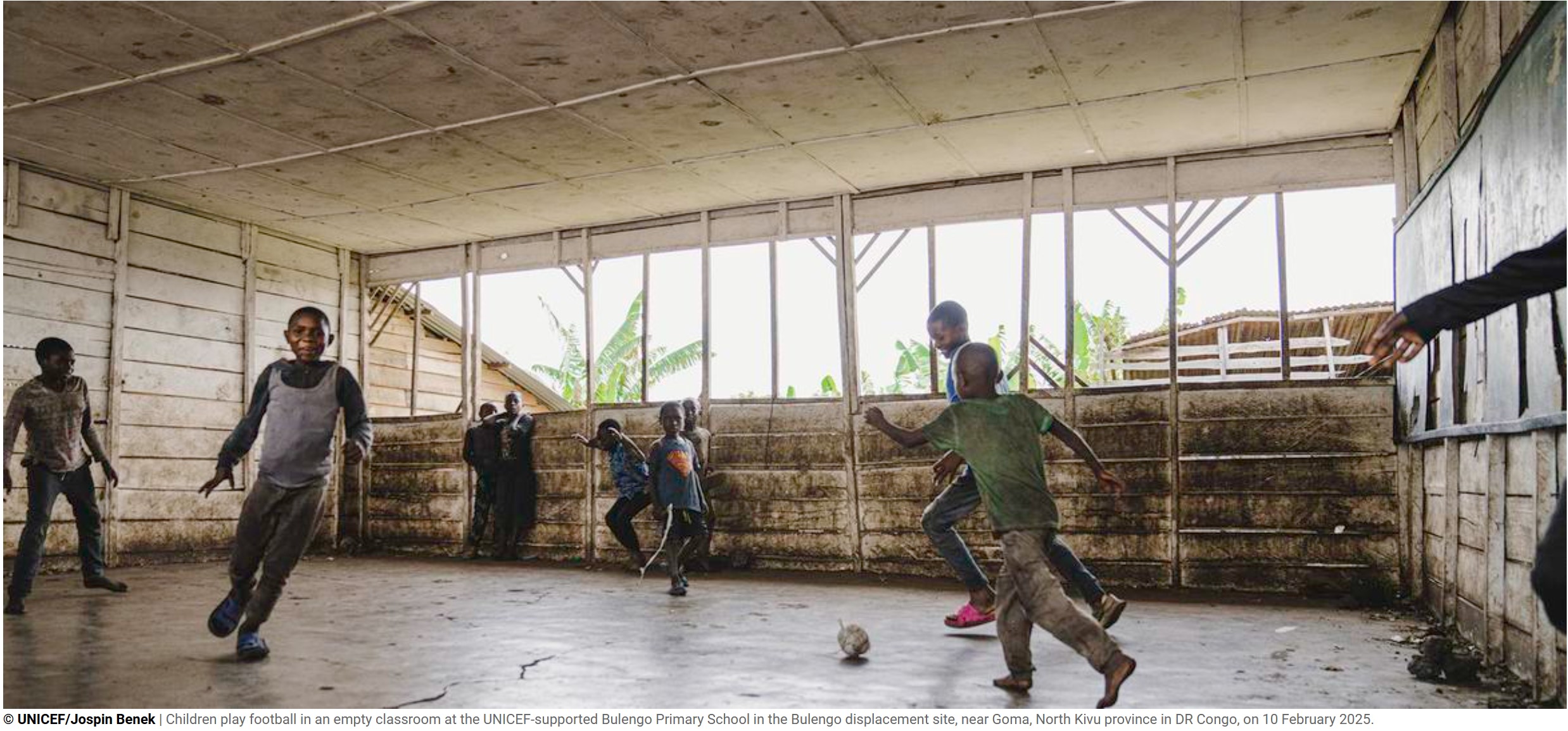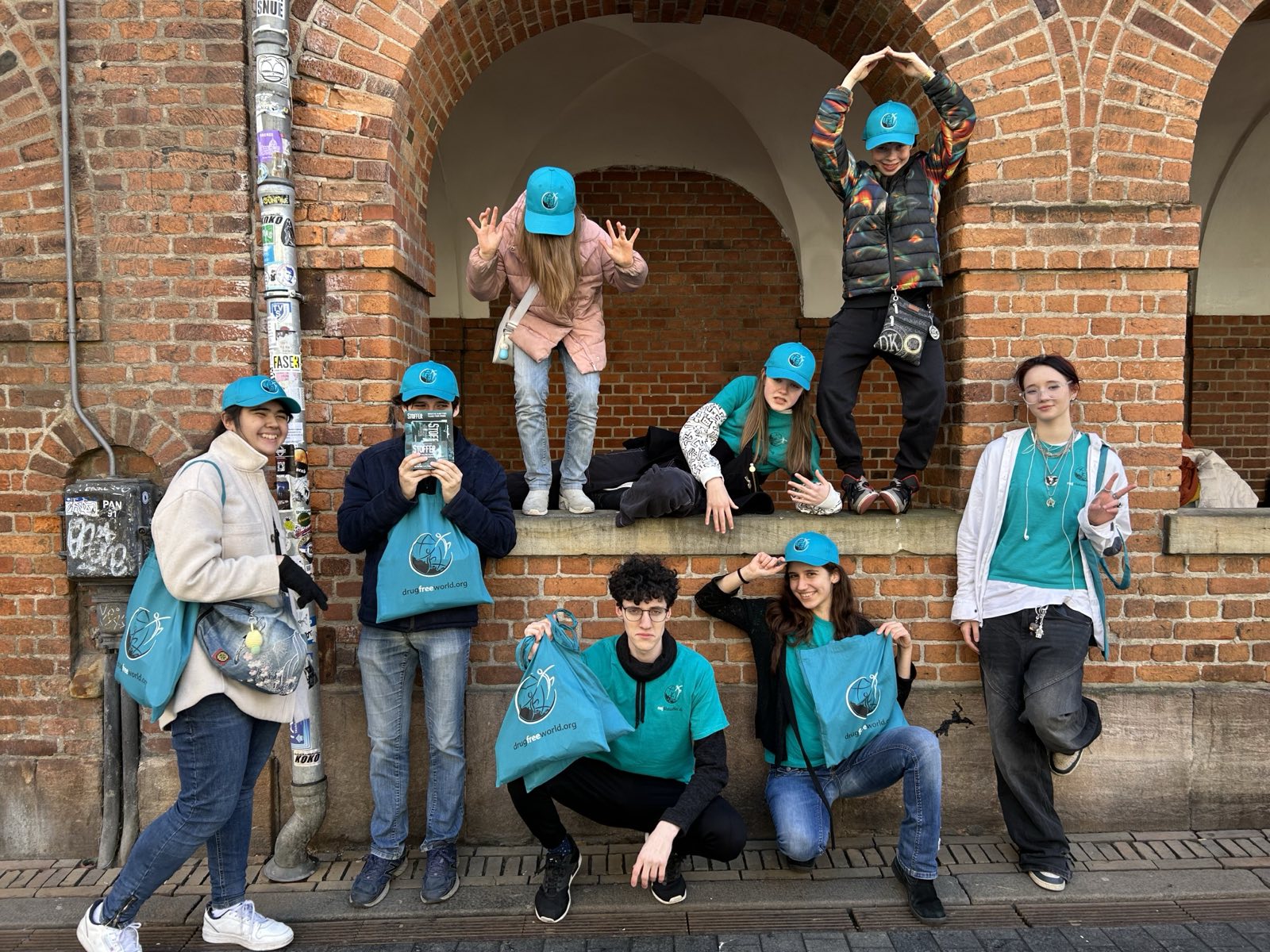Health & Society
Netflix, Painkiller and the Empire of Pain (Oxycodon)

My son, at the age of 15, was prescribed OxyConti, suffered years of addiction, and at the age of 32 died alone and in the cold in a petrol station car park. This is the mother of Christopher Tejo speaking, and her testimony appears in chapter number 1 of the series “Painkiller,” which has been available on the Netflix platform for a few days now (you can watch the trailer below).
But let’s take it one step at a time. OxyConti, OxyContin, and Oxycodone are drugs from the same family that are still prescribed to supposedly relieve pain for 12 hours. If you find yourself prescribed it by your GP, before taking it, anywhere in the world or under any circumstances, it would not hurt to read what your country’s Medicines and Healthcare Products Regulatory Agency states.
In the case at hand, the Spanish Agency for Medicines and health products clearly warns about the dangers of taking it. You can find more information at the following link: CIMA :::. PROSPECTUS OXYCONTIN 5 mg PROLONGED RELEASE PACKAGES (aemps.es). After reading it, if you still consider taking this substance, please remember the case recommended in the introduction.
Let’s extract a couple of notes from this information, as all of them are relevant:
The concomitant use of opioids, including oxycodone, and sedative medications such as benzodiazepines or related medications increases the risk of drowsiness, difficulty breathing (respiratory depression), coma, and can be life-threatening. Therefore, concurrent use should only be considered when other treatment options are not possible.
(…) This medicine contains oxycodone, which is an opioid. Repeated use of opioid painkillers can make the medicine less effective (you become accustomed to it, known as tolerance). Repeated use of OxyContin can also lead to dependence, abuse, and addiction, which can result in a life-threatening overdose.
Again, please read the link above carefully to see how much of this information can potentially save your life. Alternatively, I encourage you to read the book “Empire of Pain” by Patrick Radden Keefe, a journalist from The New Yorker, upon which the series “Painkiller” on the Netflix platform is based.
Furthermore, at the beginning of each chapter, viewers will find the testimony of a relative of someone affected by this global “cancer” manifested as a pill. This adds an interesting dimension that enhances the provided information.
Perhaps the only underlying risk for the viewer is to believe that this is a work of fiction, thereby distancing themselves from the true reality, which consists of the thousands, if not millions, of addicts that this compound has generated worldwide, under the shield of pharmaceutical companies, medical representatives, doctors, and dispensers.
Not to mention the countless sinister individuals connected to the trafficking of this drug who supply the addicts once Forensic Medicine has tightened the noose around their necks, only to abandon them afterwards. Another relevant story that has been brought to the small screen and became globally known is “House.” This is the tale of a doctor whose life was perpetually ruined due to his addiction to opiates, especially oxycodone.
In addition to the numerous documents available on the subject, you can also find more information through the now-deprecated series “Dopesick.” This was the initial series on the topic in the USA.
Interestingly, beyond fiction, which frequently incorporates the theme of oxycodone into its plots, even apprehending certain traffickers with contents from any bottle that could be legally obtained from around the world, aside from these two series and the previously mentioned book, there is often limited divulgence of this subject. Why is that?
Perhaps the answer lies within the mentioned book “Empire of Pain.” On the back cover of this book, we find a succinct summary of what lies within:
“The Sackler name graces the walls of the most esteemed institutions: Harvard, the Metropolitan, Oxford, the Louvre… They are among the wealthiest families globally, patrons of the arts and sciences. The origins of their wealth have always been questionable, until it was revealed that they had multiplied it through OxyContin, a potent painkiller that catalysed the opioid crisis in the United States.”
“The Empire of Pain” begins during the Great Depression, chronicling the tale of three brothers in the medical field: Raymond, Mortimer, and the indefatigable Arthur Sackler, endowed with a unique acumen for advertising and marketing. Years later, he contributed to the first family fortune by crafting the commercial strategy for Valium, a groundbreaking tranquillizer.
Decades later, it was Richard Sackler, Raymond’s son, who assumed leadership of the family’s enterprises, including Purdue Pharma, his personal pharmaceutical company. Building upon his uncle Arthur’s assertive tactics in promoting Valium, he launched a drug that was meant to be revolutionary: OxyContin. It amassed billions of dollars, yet ultimately sullied his reputation.
Do you believe the reputation of these ominous characters is of any consequence to the thousands of victims and hundreds of thousands of family members who have witnessed the lives of those ensnared by this drug and its derivatives crumble?
However, the Sacklers don’t seem to be the sole culprits. Perhaps it is time to start disassembling the reputation of certain institutions. Esteemed universities and the aforementioned prestigious museums ought to consider whether having such a name adorning their walls renders them emotionally complicit in this tragedy. And what about many of the world’s media outlets, corporations, and even politicians who, I am sure, have benefited from the support of this family among their donors?
But let me refrain from being the one to state this; rather, let me echo Patrick Radden’s sentiments and conclude with his words:
(page 573 of the book) As I have underscored throughout the book, OxyContin was far from being the sole opioid fraudulently advertised or recognized for its widespread abuse, and my choice to focus on Purdue does not imply that there are no other pharmaceutical companies that do not deserve a fair share of the blame for the crisis. The same can be said for the FDA, the doctors who wrote the prescriptions, the wholesalers who distributed the opioids, and the pharmacies that fulfilled those prescriptions.
(…) All three branches of the Sackler family displayed less than enthusiasm about the prospect of this book being published. Arthur’s widow and her children repeatedly declined invitations for a conversation, as did the Mortimer branch of the family. Raymond’s branch opted for a stance of more active antagonism, even going so far as to hire a lawyer, Tom Clare, who runs a boutique law firm based in Virginia, specializing in intimidating journalists to make stories “die” before they are even published.
I would like to note that the bold text is my addition, and any errors in the text are my own. It is evident that pharmaceutical industries can wield their power to detrimentally affect individuals with certain types of drugs, often employing the euphemism of the greater good, accepted by a complacent media when it comes to investigation, or by a lax healthcare system when it comes to implementing measures, occasionally due to the allure of gifts or perks.
Exercise caution with opiates, regardless of their type. They are addictive and perilous, with dreadful side effects. As indicated by their contraindications, they could jeopardize your health or even your life.
Yet, does the world’s medical and political establishment acknowledge this? It is up to us to ensure that we do not end up, in the end, as a society sedated by the influence of a handful of major pharmaceutical corporations, whose sole interest is a fistful of dollars.
First published in EuropaHoy.News
Health & Society
EU Court of Justice: Gender identity cannot depend on proof of surgical operation

Correction of data on gender identity cannot depend on proof of surgical operation. This is stated in the judgment of the EU Court of Justice in case C-247/23.
In 2014, V.P., an Iranian national, obtained refugee status in Hungary, citing his trans identity and presenting medical certificates drawn up by specialists in psychiatry and gynaecology. According to those certificates, although the person in question was born a woman, his gender identity was that of a man.
After his refugee status was recognised, the person in question was entered as a woman in the asylum register. In 2022, on the basis of the same medical certificates, V.P. requested, in particular, that authority to correct the indication of his gender in that register and the asylum granted. However, the person’s request was rejected on the grounds that V.P. did not prove that he had undergone gender reassignment surgery.
The person appealed against the refusal before the Budapest City Court. It stated that Hungarian law does not provide for a procedure for the legal recognition of trans identity.
The Court of Justice of the EU stated that, under Article 16 of the General Data Protection Regulation (GDPR), and in particular under the principle of accuracy laid down therein, the data subject has the right to obtain from the controller the rectification without undue delay of inaccurate personal data relating to him. That regulation thus gives concrete expression to the fundamental right enshrined in the Charter of Fundamental Rights of the European Union (hereinafter referred to as the “Charter”), according to which everyone has the right of access to data collected concerning him and the right to have them rectified.
In that regard, the Court of Justice of the EU noted that the accuracy and completeness of those data must be assessed in the light of the purpose for which they were collected. The CJEU considers that the Hungarian court must verify the accuracy of the data at issue in the light of the purpose for which they were collected. If the collection of those data is intended to identify the data subject, those data appear to relate to the gender identity experienced by that person and not to the gender identity assigned to him or her at birth.
In that context, the CJEU states that a Member State cannot rely on the absence of a procedure for the legal recognition of transidentity in its national law in order to prevent the exercise of the right to rectification. Indeed, although EU law does not affect the competence of the Member States in the field of civil status and the legal recognition of their gender identity, those States must comply with EU law, including the GDPR, read in the light of the Charter.
The Court of Justice of the EU concluded that the GDPR must be interpreted as requiring a national authority responsible for maintaining a public register to rectify personal data relating to the gender identity of a natural person where those data are inaccurate within the meaning of that regulation. Secondly, the Court found that, in order to exercise the right to rectification, that person may be required to provide relevant and sufficient evidence which may reasonably be required to establish the inaccuracy of those data.
However, a Member State may in no circumstances make the exercise of the right to rectification conditional on the production of evidence of gender reassignment surgery. Such a requirement affects, in particular, the essence of the right to the integrity of the person and the right to respect for private life, as set out in Articles 3 and 7 of the Charter respectively.
Furthermore, such a requirement is in any event neither necessary nor proportionate in order to ensure the reliability and consistency of a public register such as the register of asylum granted, since a medical certificate, including a preliminary psychological diagnosis, may constitute relevant and sufficient evidence in that regard.
Health & Society
DR Congo: Armed violence displaces thousands as cholera outbreak worsens

Ongoing violence in North and South Kivu in the Democratic Republic of the Congo (DRC) continues to kill, injure and displace civilians, the UN Office for the Coordination of Humanitarian Affairs (OCHA) has warned.
Intense clashes between local armed groups and M23 rebels were reported on Thursday in the town of Masisi Centre in North Kivu.
Preliminary reports from partners on the ground indicate at least two civilian fatalities and multiple injuries, with several wounded evacuated to Masisi General Hospital.
Meanwhile, many civilians remain confined to their homes due to active crossfire, intensifying fear and limited access to basic needs and services.
“The volatility of frontlines and ongoing combat have rendered comprehensive assessments impossible,” OCHA said.
Despite international support, armed groups have made significant recent gains, particularly the M23 movement, which claims to defend the interests of Congolese Tutsi – many of whom were exiled to Rwanda – and is reportedly backed by Rwandan forces. The extremist Allied Democratic Forces (ADF) also remain active in the region.
Delivering lifesaving aid
In eastern Masisi, where the security situation allows, UN partners are delivering critical aid to displaced and returning populations.
OCHA noted that since yesterday, partners have been distributing household and hygiene kits to more than 500 displaced households in Sake’s collective centre.
Furthermore, 19 of 24 water points in Sake have been rehabilitated, restoring access to safe water for over 4,000 households.
Fresh clashes in South Kivu
In South Kivu, fighting flared again on Tuesday in Fizi Territory, as local armed groups clashed with M23 fighters.
The violence struck the villages of Mulima and Lusuku – both already sheltering thousands of displaced families – prompting another wave of forced displacement.
Cholera outbreak
Meanwhile, in the southern province of Tanganyika, a rapidly escalating cholera outbreak is placing thousands at risk.
As of Wednesday, nine out of 11 health zones in the province are affected, with more than 1,450 confirmed cases and 27 deaths reported since January – a six-fold increase compared to the same period last year.
UN health partners point to severely limited access to safe water – with less than 20 per cent coverage in affected areas – and insufficient healthcare capacity to manage cases effectively.
Health & Society
Danish Youth Take Charge: A Drug-Free Future, One Shop at a Time

KINGNEWSWIRE – Press release // In the heart of Copenhagen, a group of 15 young activists—aged 10 to 20—are rewriting the narrative on youth empowerment and community health. Inspired by the principles of the Convention on the Rights of the Child and their faith in the Church of Scientology, these teens are spearheading a grassroots campaign to create a drug-free environment. Armed with educational booklets from The Truth About Drugs initiative, they’re turning local businesses into hubs of prevention, proving that age is no barrier to driving societal change.
From Booklets to Action: A Youth-Led Movement
Having started over a month, the group visits shops across Copenhagen, gaining the support of owners and shop assistants to display drug prevention materials at checkout counters. Their approach is simple but impactful: make critical information accessible to everyday customers, sparking conversations about the dangers of substance abuse. “They’re not just kids handing out flyers,” says Giulia, who guides them in this endeavor. “They are showing adults that they care about our future—and that they are taking responsibility for it.”
Their efforts align with global frameworks like the UN Convention on the Rights of the Child, which emphasizes youth participation in decisions affecting their lives. By engaging directly with businesses, the group embodies the spirit of some of UNICEF’s programs, which empowers young people to design solutions for community challenges. “These teens are bridging gaps between generations, ensuring their message resonates where it matters most” said Giulia, in charge of public affairs at the Church of Scientology in Denmark.
Tackling a Local Crisis with Global Lessons

Denmark has long grappled with youth drug use, particularly in areas like Copenhagen’s Freetown Christiania, where hash consumption reportedly remains prevalent. The group’s campaign addresses this head-on, mirroring strategies from what is done in other countries, and try to instil this to every other European country, combining education with community outreach to combat addiction before it arrives.
Their work also reflects a vision of supporting recovery and prevention, proving that empowerment starts long before crisis intervention. The program, one of the world’s largest non-state drug prevention initiatives, is fully funded by members of the Church of Scientology, inspired by L. Ron Hubbard’s research on drug prevention and rehabilitation. However, the teens emphasize the universal message of their materials: facts about drug risks, peer pressure, and making healthy choices “Our religion teaches us to serve others, and do it with factual information” says one of the participants, “this is about saving lives, not religious beliefs.”
A Model for Youth Agency Worldwide
The group’s initiative resonates with many international programs, by equipping young people to drive social change. By partnering with local businesses, this recently started Truth About Drugs youth group, is fostering a culture of collective responsibility. Their actions also echo WHO’s call for youth engagement in health advocacy, positioning them as allies in Denmark’s public health goals.
As these teens inspire shop owners and customers alike, they’re proving that meaningful youth participation isn’t a fairy tale. It’s a blueprint for building resilient communities—one booklet and one conversation at a time. “They are not waiting for permission to change the world,” says Ivan Arjona, Scientology’s representative to the European Union and the UN “They are already doing it.”
-

 Health & Society4 days ago
Health & Society4 days agoThe Art of Earthing – Grounding Yourself for Better Physical Health
-

 Health & Society5 days ago
Health & Society5 days agoNatural Sleep Solutions – Creating a Restorative Nighttime Routine
-

 Health & Society6 days ago
Health & Society6 days agoCold Showers and Beyond – Embracing Temperature Therapy for Vitality
-

 Sports5 days ago
Sports5 days agoInter: Acerbi’s renewal is already there and the clause is no longer a concern
-

 Politics2 days ago
Politics2 days agoEU Parliament Tackles Steel Industry, Fundamental Rights, and Budget Priorities in Plenary Session
-

 Sports5 days ago
Sports5 days agoNapoli-Milan, Bruscolotti warns: “Leao gave us so many sorrows”
-

 Sports2 days ago
Sports2 days agoNBA, Steph Curry and Nikola Jokic show: Memphis knockout, Minnesota no
-

 EU & the World2 days ago
EU & the World2 days agoIs Cory Booker Still Speaking? How Long His Filibuster Lasted



















